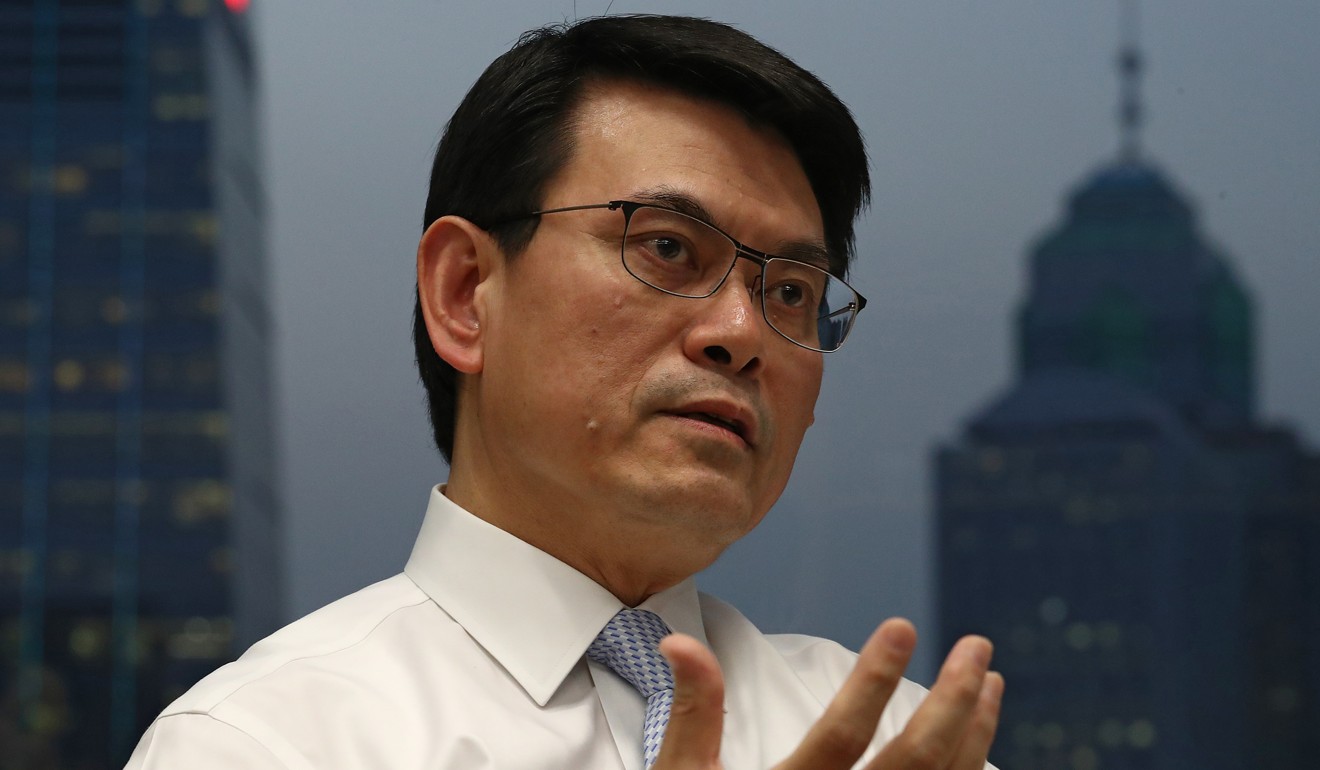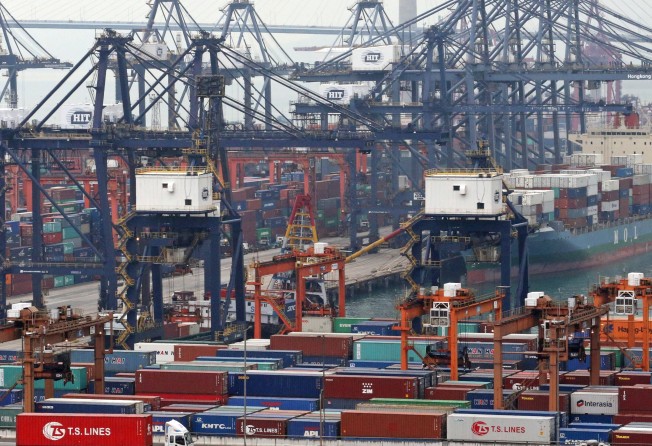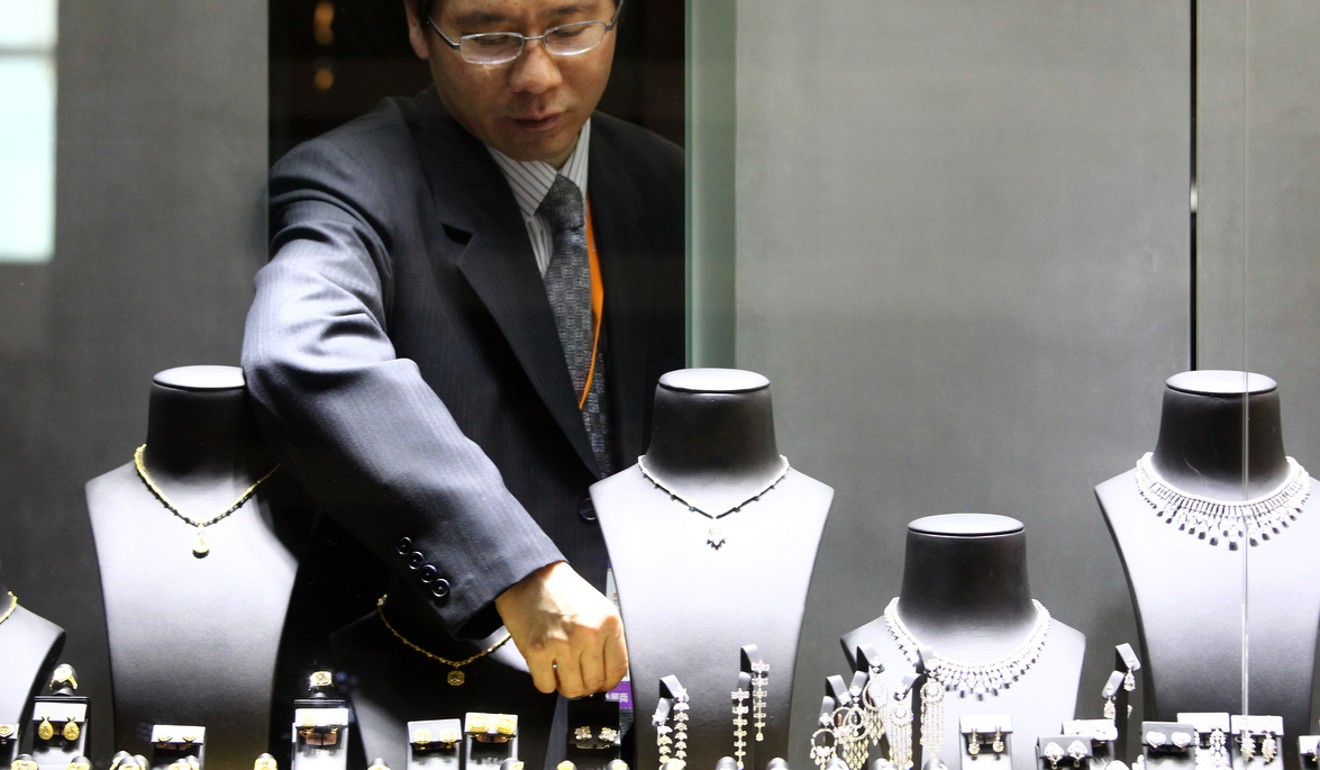
Declaration fee cap for imports and exports a ‘goodwill’ proposal, although SMEs won’t benefit, Hong Kong trade industry says
Government says plan is aimed at moving city’s trade up the value chain and strengthening position as business hub

A proposal to cap declaration charges for goods imported into and exported out of Hong Kong is a goodwill gesture from the government, despite it not being of substantial benefit to local small and medium-sized companies, a trade association has said.
The comments came as Secretary for Commerce and Economic Development Edward Yau Tang-wah on Saturday said the plan could help boost trade in high-value goods and strengthen Hong Kong’s position as a business hub.
The government had on Wednesday proposed to amend regulation which would cap the charges for each declaration at HK$200 (US$25).

Currently, companies exporting and importing goods have to pay declaration fees based on the value of the products.
This means high-value goods, such as jewellery, art and antiques for auction as well as expensive medicine, usually incur hefty amounts.
Industry members generally welcomed the proposal, saying it would help reduce costs for companies, especially those that trade in high-value goods.
However, the Hong Kong Chinese Importers’ and Exporters’ Association, a trade body representing more than 4,000 members, said the impact on small companies in the city would be minimal.
According to the association, most SMEs and local trade companies usually deal with lower-value consumer products, such as clothes, toys and home appliances.
“The value of these items is not high, but the volume is large, so the declaration charges would not be substantial,” association vice-president Michael Hui Wah-kit said. For example, a shipment of non-food items worth HK$1 million would be charged only HK$119.50.
“It’s more of a gesture and an act of goodwill than a real monetary gain,” he said.
It’s more of a gesture and an act of goodwill than any real monetary gain for companies
In the past four years, the government raked in between HK$866 and HK$913 million in annual revenue from such charges, according to official data.
About 70 per cent of declaration fees were at or below HK$10, although charges for high-value goods were quite substantial, according to the Commerce and Economic Development Bureau.
Yau said on Saturday: “[The proposal] would [help Hong Kong] move up the value chain, and maximise the city’s position [as a trade hub].”
The move is expected to benefit 900,000 declaration cases each involving more than HK$1.64 million.
It is estimated to save the import and export industry about HK$458 million a year, with a 48 per cent drop in government revenue from the levy.

“Hong Kong has become one of the world’s three major auction centres for artwork. Oil paintings, antiques and art could incur tens of thousands or even hundreds of thousands in declaration fees, which seemingly is an unnecessary obstacle,” Yau said.
“We don’t hope to increase government earnings through trading [charges]. Rather, we aim to help reduce obstacles so Hong Kong’s status as a trade centre and the entire industry can benefit.”
We aim to help reduce obstacles so Hong Kong’s status as a trade centre and the entire industry can benefit
The amendments will be introduced in the Legislative Council for approval on June 20. If passed, the new rules will come into effect on August 1.
As to whether the change would help the city’s trade move up the value chain, Hui said it would only provide incentives to some industries that had the potential.
“It really depends on the industry and the expertise involved,” he said.
For example, those who import and export raw diamonds could move up the chain and diversify their portfolio by trading in finished products, such as jewellery. The potential for other types of trade could be more limited, Hui added.
Jimmy Ng Wing-ka, a lawmaker representing the industrial sector, said the amendment could indirectly attract high-value manufacturing – such as the production of electronic chips – to the city.
“Because Hong Kong’s legal system and protection is better, it may be more beneficial to locally produce such chips and re-export them [if the amendment is passed],” Ng said.